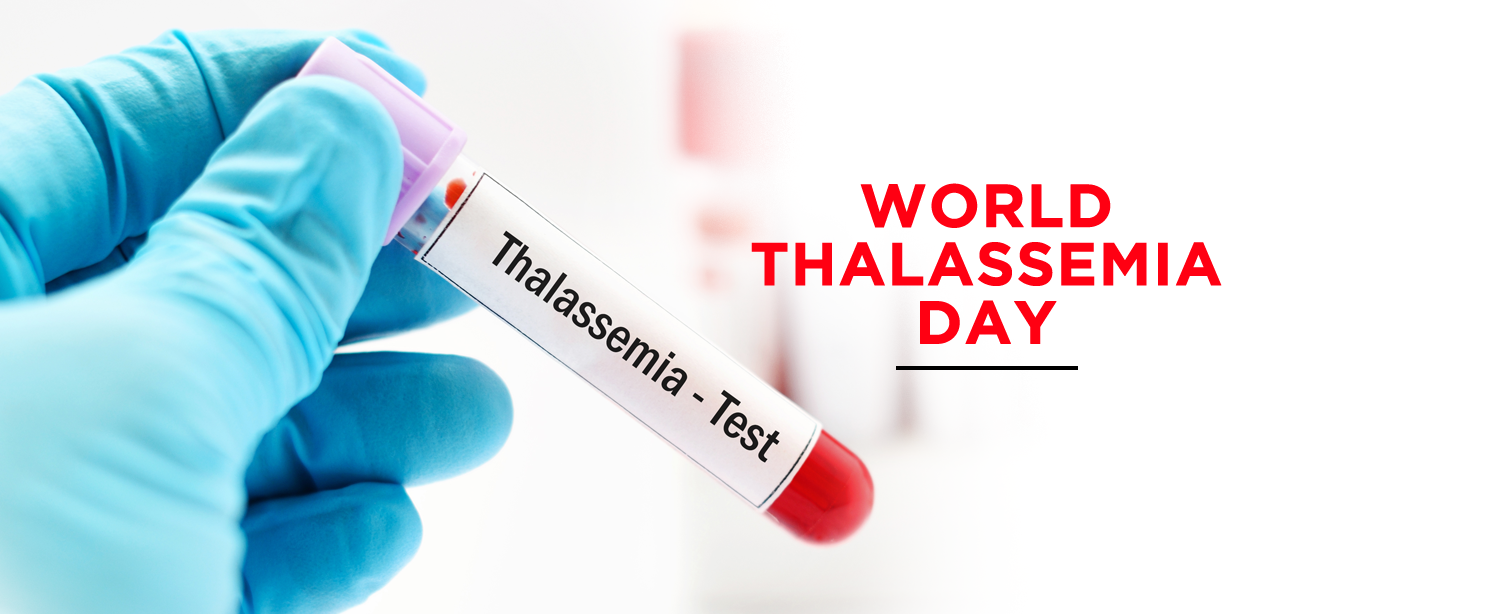What is thalassemia?
Red blood cells transport oxygen throughout the body; haemoglobin is the protein in red blood cells that carries the oxygen. Thalassemia is an inherited blood disorder that affects the body’s ability to produce normal haemoglobin. People who have thalassemia produce fewer healthy haemoglobin proteins, and their bone marrow produces fewer healthy red blood cells. Haemoglobin is important because it lets your red blood cells carry oxygen to all parts of your body.
In India, every year 10,000 children are being born with thalassemia which approximately accounts for 10% of the total world incidence of thalassemia-affected children. 1 in 8 thalassemia carriers live in India. In India, there are nearly 42 million carriers of the β-thalassemia trait.
Causes
Thalassemia is caused by mutations in the DNA of cells that make hemoglobin — the substance in red blood cells that carries oxygen throughout your body. The mutations associated with thalassemia are passed from parents to children.
Types of thalassemia
Types of thalassemia are defined by two things: the specific part of hemoglobin that is affected (usually either “alpha” or “beta”), or the severity of thalassemia, which is noted by words like trait, carrier, intermedia, or major.
Hemoglobin, which carries oxygen to all cells in the body, is made of two different parts, called alpha and beta. When thalassemia is called “alpha” or “beta,” this refers to the part of hemoglobin that isn’t being made. If either the alpha or beta part is not made, there aren’t enough building blocks to make normal amounts of hemoglobin. Low alpha is called alpha thalassemia. Low beta is called beta thalassemia.
When the words “trait,” “minor,” “intermedia,” or “major” are used, these words describe how severe the thalassemia is. A person who has thalassemia trait may not have any symptoms at all or may have only mild anaemia, while a person with thalassemia major may have severe symptoms and may need regular blood transfusions to survive.
The symptoms of Thalassemia include:
- Slow growth in children.
- Wide or brittle bones.
- Weakness.
- Pale or yellow skin.
- Enlarged spleen.
- Fatigue.
- Dark urine.
- Poor appetite.
- Heart problems.
In some people, symptoms show up at birth. In others, it can take a couple of years to see anything. Some people who have thalassemia will show no signs at all.
Treatment
With a mild case, you may feel tired and not need treatment. But for serious cases you need regular blood transfusions. A transfusion is a way to get donated blood or parts of blood that your body needs, like haemoglobin. How often you need transfusions can vary from person to person. Sometimes, transfusions of blood cause reactions like high fever, nausea, diarrhoea, chills, and low blood pressure.
Complications
People with moderate thalassemia have an increased risk of infection and also suffer from iron overload. Some people with severe thalassemia have other health problems, like bone deformities, heart or liver disease.
Living with Thalassemia
It is possible to live a healthy life with Thalassemia. Follow these health tips to stay healthy:
- Don’t take iron pills.
- Ask your doctor about supplements like calcium and vitamin D.
- Stay away from sick people and wash your hands often.
- Eat a healthy diet to keep your bones strong and give you energy.
Myths and Facts
Myth: Thalassemia carrier couples will always have Thalassemia Major children.
Fact: That is not true. When both the partners are Thalassemia carriers there is 25 percent chance of having a Thalassemia Major child, 50 percent Thalassemia Minor and 25 percent normal i.e. not even a carrier. And if only one or none of the couple is a carrier, none of the child will be a Thalassemia Major.
Myth: Thalassemia is not preventable.
Fact: Thalassemia is 100 percent preventable. Thalassemia can be easily prevented by pre-marital screening or early pregnancy screening followed by marriage counselling and antenatal diagnosis if required.
Myth: There is no treatment for Thalassemia Major.
Fact: Thalassemia Majors can live normal life if they are given adequate blood transfusion and iron chelation therapy.
Myth: Thalassemia cannot be cured.
Fact: Thalassemia can be cured by bone marrow transplantation but it requires HLA matched siblings. However, HLA matched donor is not always available.
Thalassemia and COVID-19
There is no evidence that thalassemia trait makes carriers more susceptible to the virus. Patients with beta thalassemia trait (or minor) have no increased risk of infection from the coronavirus, compared to other healthy individuals. Therefore it is best to follow the advice of regular hand wash and social distancing to prevent COVID-19.
Patients suffering from thalassemia major must continue with their blood transfusion schedule. Follow high levels of personal hygiene, wear a mask and practice social distancing at the hospital too. Check with your healthcare provider for the safest possible environment for receiving transfusions.
Get expert advice and treatment for Thalassemia at our specialised Thalassemia Clinic. Please find below link for more details:
https://www.kokilabenhospital.com/departments/clinicsatkh/thalassaemia.html


